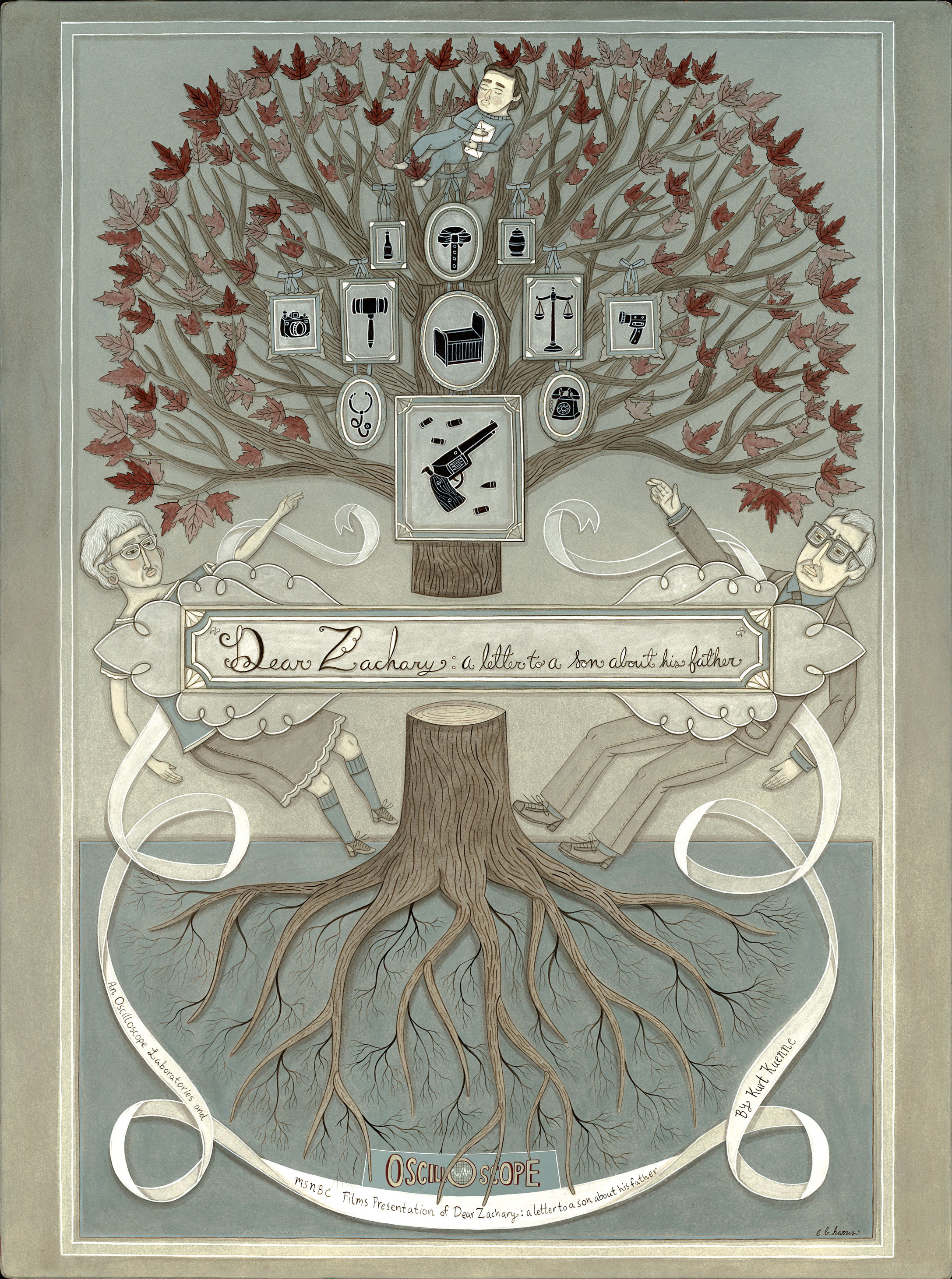There are 4 kinds of documentary that I like. There are nature documentaries, particularly of the bent of PBS’s Nature, and David Attenborough’s wildlife programs, as well as the work of the National Geographic Society. There are Historical documentaries, particularly stuff like the American Experience, as well as stuff like the Connections series and some documentaries like One Day in September. There are Journalistic documentaries, such as the material from PBS’s Frontline series, and some of the films that are part of the POV series. Then, finally, there are documentaries that I would describe as Gonzo Journalism. Dear Zachary is one those documentaries.
First, I need to clarify something. Michael Moore’s documentaries aren’t Gonzo Journalism. Morgan Spurlock’s documentaries aren’t Gonzo Journalism. Also, you don’t need to be on drugs to make a documentary that is Gonzo Journalism. Ultimately, Gonzo Journalism, as it was when Hunter S. Thompson came up with it, is the idea that someone covering an event, or witnessing an event, cannot not become a part of the event. Thus, rather then attempt to hang on to some form of clinical detachment, you should become a participant in events. The classic example from Thompson’s work isn’t Fear and Loathing in Las Vegas, but rather Fear and Loathing on the Campaign Trail.
Dear Zachary is Gonzo Journalism at its most sober and most serious. The impetus behind the film, at the very beginning, is probably very similar to the impetus that I had when I wrote my blog post about Beau Jacobson, after I learned of his death. However, there were two differences, between the two, at the outset. First, I’m a blogger, who is working to get into IT (and wouldn’t mind getting into Journalism), while the director of Dear Zachary was a documentary filmmaker, one who had been working in the field for quite some time. The second is that Beau’s death was an accident, while the death of director Kurt Kuenne’s friend Andrew Bagby was an act of pre-meditated murder.
So, Kurt’s plan was simple, to meet with some of the people whose lives Andrew had touched, and record remembrances about him. Then a revelation came that changed the plan. Andrew’s murderer, an psychotic ex-girlfriend (this was confirmed by prior psychiatric treatment) was pregnant with Andrew’s son, she gave birth to and named Zachary. So, Kurt changed the tack of his documentary, turning the film into a sort of film scrapbook to tell Zachary who his father was, and why people cared so much about him. However, this is a documentary with a twist. While this film is 2 years old, I would be remiss as a critic if I stated this twist, at least not without a giant chunk of spoiler space, so I won’t.
The documentary is a Gonzo Documentary mainly because of how it handles it’s narrative. The film puts itself squarely in Kurt’s head, and he tells us regularly what he thinks about things. That said, this he doesn’t editorialize at length in this for much of it, letting Andrew’s friends and family express their opinions for them. That said, this is a very personal piece. Kurt narrates the documentary, and scores it. Clips from short films he made with Andrew when they were younger are included in the documentary, and Kurt’s voice audibly breaks up when he reads from Andrew’s coroner’s report. Kurt goes at great detail about the circumstances leading up to Andrew’s death, as well as the events that follow–Andrew’s ex-girlfriend’s flight to Canada after she was released on bail, the discovery that she was pregnant with Zachary, and then after Zachary’s birth the custody battle between Andrew’s ex-girlfriend and Andrew’s parents for custody of Zachary.
However, and this is perhaps my sole complaint, from a narrative standpoint, and only from that standpoint. The twist is heavily telegraphed. Well, not so much the twist itself, but the fact that a twist is coming. When you’re looking to tell your best friend’s son about the father he’ll never know, you don’t go at length over the custody battle between the psycho mother you hope he’ll never know and the people you hope he’ll know as his parents (as opposed to going through the foster system). If your goal is educating a son about his father, you make a biography. You take him through his father’s childhood years, through school (including college) and his professional life until he died. That’s how you want to do it, whether the father was murdered, killed in the line of duty while serving his country, or succumbed to cancer. While the approach Kurt takes helps to build up a sense of dread in the viewer about the twist, that wouldn’t do much good to your stated target audience of one.
Thus, when the film changes the direction it’s going, stops addressing Zachary and begins addressing us, the viewer, it shocks us, and perhaps strikes us numb, but we can’t really say we didn’t know that something was coming. We can’t say we didn’t hear the footsteps coming up behind us. We just didn’t know what was coming would be so bad.
All that said, this is a masterwork documentary, and it is a crime against film that it was not nominated for the Academy Award for Best Documentary Feature. This film is the Platonic Form of the Gonzo Documentary, one that puts its audience through the wringer, in a fashion that is emotionally honest and legitimate, and leaves them motivated to do what they can to make sure that no one has to suffer like the Bagbys did ever again.


Pingback: Tweets that mention Movie Review – Dear Zachary « Dreams of the Red King. -- Topsy.com